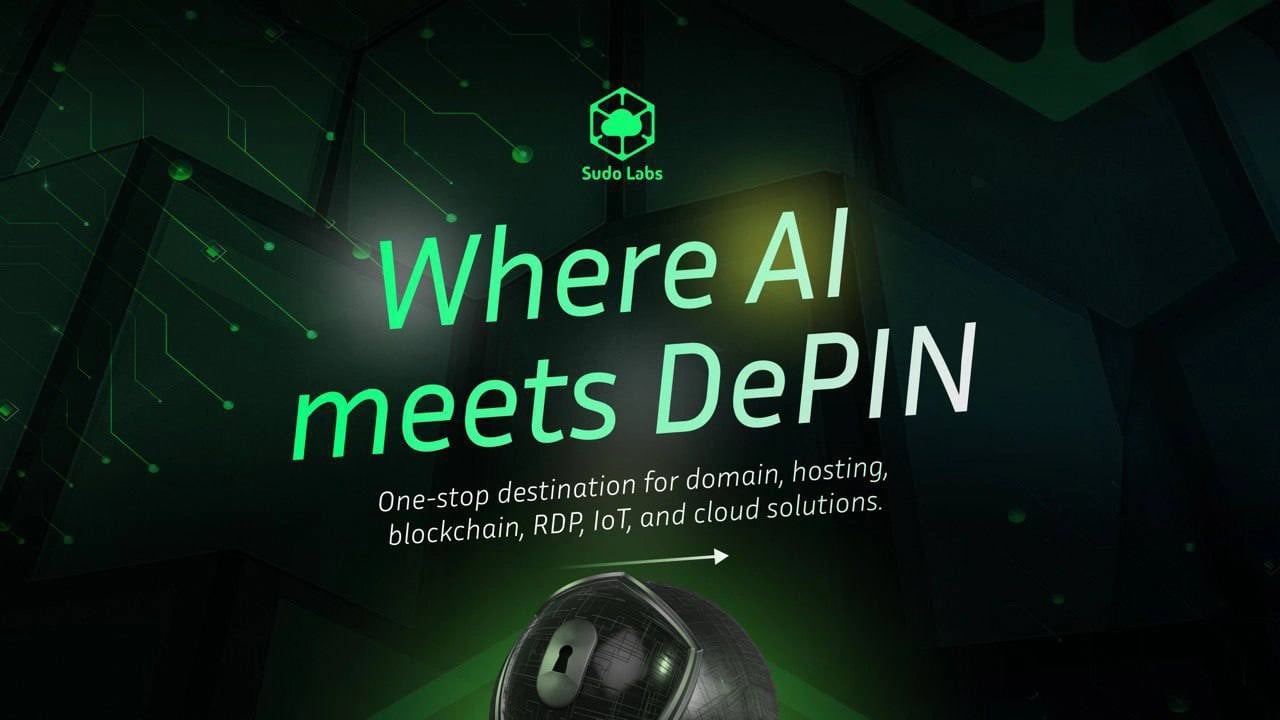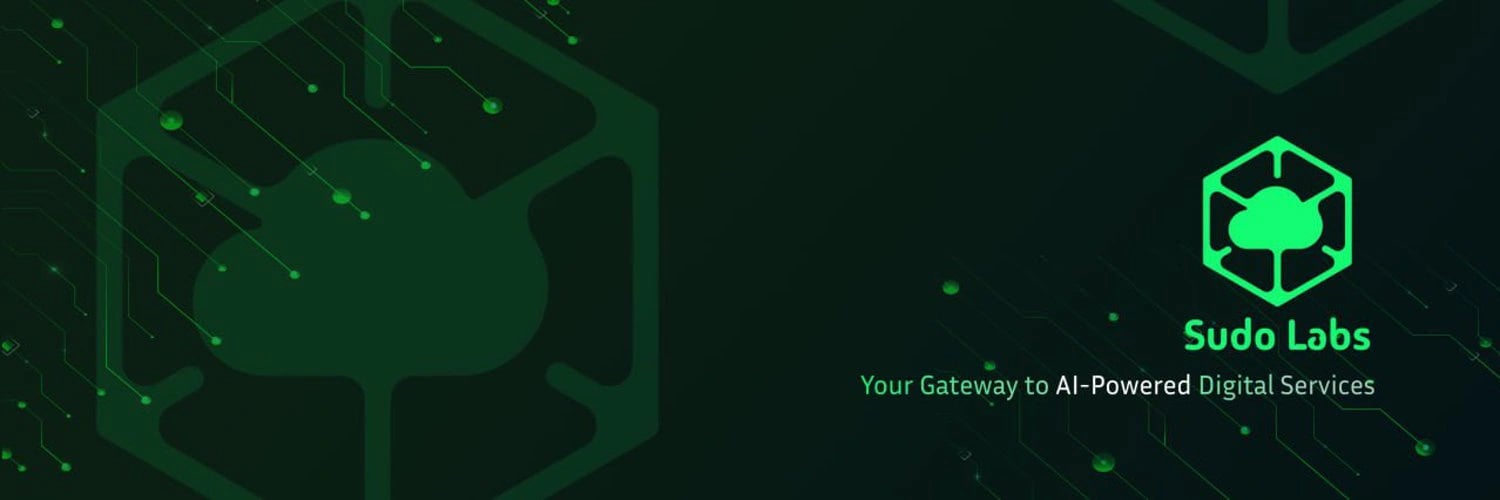Subscribe to wiki
Share wiki
Bookmark
Sudo Lab
The Agent Tokenization Platform (ATP):Build autonomous agents with the Agent Development Kit (ADK)
0%
Sudo Lab
Sudo Lab is an AI platform that aims to simplify asset management in hosting, blockchain, RDP, IoT, and cloud services, supporting more efficient digital operations. [1]

Overview
Sudo Lab, founded in 2024, is an AI platform that aims to simplify digital asset management by consolidating services such as domain management, hosting, blockchain node deployment, IoT solutions, RDP, and cloud infrastructure into a single interface. It incorporates AI and machine learning models to streamline tasks, including containerization and website development. The platform also explores decentralized IoT solutions and plans to introduce tokenized access through the $SUDO token. Future developments aim to enhance its capabilities through a dedicated DApp and updates informed by community input. [1] [2] [3]
Features
Sudo Lab aims to provide a centralized platform for managing domains, hosting, cloud solutions, IoT, blockchain nodes, RDP, and containerization, supporting more streamlined digital workflows. It uses AI models such as GPT-4, BERT, and AlphaZero to automate processes and improve task efficiency.
The platform includes a tokenized access model with the $SUDO token, which may be required for accessing specific features in the future. It also supports decentralized IoT solutions, such as sensor networks like Helium, to promote connectivity and data-driven insights.
Sudo Lab facilitates cloud infrastructure management by enabling users to deploy blockchain nodes, containers, and Node as a Service. Planned developments include an AI Agent DApp with updates informed by user feedback. [3]

Architecture
Sudo Lab's architecture aims to offer scalable and reliable digital management through an AI-powered agent. It focuses on ensuring high availability, performance, and security, supporting features like blockchain node deployment, domain management, containerization, and IoT solutions. These components are designed to work together, providing efficient and decentralized services. [5]
AI Agent Interface
Sudo Lab's AI agent aims to simplify digital asset management by using Natural Language Processing (NLP) to interpret commands like "deploy blockchain node" or "check domain availability."
The API gateway facilitates secure request management, while command and response handlers process inputs and provide clear, actionable feedback. [6]
Service Layer
Sudo Lab utilizes a modular microservices architecture, where each service operates independently, allowing for scalability and ease of maintenance.
The platform includes an AI-powered service registry that monitors service health and employs machine learning to route traffic efficiently. Additionally, a dynamic load balancer aims to optimize resource allocation and response times, managing varying demands effectively. [7]
Decentralized Hosting
Sudo Lab aims to optimize data access by combining object storage and CDNs for efficient, low-latency performance. Its decentralized network allows users to contribute resources such as bandwidth and storage, with machine learning models working to enhance network performance.
Contributions are tracked and rewarded through the $SUDO token system, while a distributed ledger ensures transparency. Data integrity is maintained using cryptographic hashing and regular cross-checks across nodes. [8]
Blockchain Node & NaaS
Sudo Lab aims to simplify blockchain node deployment through Node as a Service (NaaS), automating the setup, monitoring, and scaling of resources. It supports the deployment of both full and validator nodes, adjusting resources based on demand for optimal performance.
The platform offers rewards to users who contribute node hardware, providing governance tokens that allow for participation in decision-making processes and integration within the $SUDO token ecosystem. [9]
IoT
Sudo Lab aims to integrate IoT devices into a decentralized data collection network, allowing users to contribute sensor data to a blockchain system. The data is categorized by attributes like type, location, and timestamp to ensure efficient processing.
Distributed validation protocols are used to ensure data accuracy, and participants are compensated with $SUDO tokens based on the quality and volume of the data they provide. [10]

Use Cases
Sudo Lab aims to simplify digital asset management and improve productivity through various utilities, including:
- AI-Powered Automation: Centralizes tasks to streamline processes and support various commands.
- Domain Management: Allows users to check domain availability, register, and manage domains.
- Hosting Services: Provides scalable options, including email, WordPress, VPS, and dedicated hosting.
- Containerization: Facilitates deployment and management using Kubernetes and serverless technologies.
- Cloud Solutions: Supports infrastructure management, blockchain node deployment, and storage handling.
- RDP Services: Enables remote desktop access for file transfers and collaboration.
- Website Development: Offers AI-guided tools for creating functional websites with layout and design suggestions.
- Decentralized Hosting: Users can contribute unused bandwidth and storage to a network, earning $SUDO tokens.
- Node as a Service (NaaS): Provides support for deploying blockchain nodes, with rewards for participation.
- IoT & Data Collection: Facilitates the sharing of sensor data to contribute to shared networks, with rewards for participation. [4]
Tokenomics
Sudo Lab Token ($SUDO)
The $SUDO token functions as a central element within the Sudo Lab ecosystem, facilitating incentives, rewards, and decentralized transactions. The tokenomics model aims to ensure fair and transparent distribution, supporting community engagement and the long-term development of the platform. [3] [11]
Allocation
The $SUDO token follows the ERC20 standard with a total supply of 1 million tokens. The allocation is as follows:
See something wrong?
The Agent Tokenization Platform (ATP):Build autonomous agents with the Agent Development Kit (ADK)
